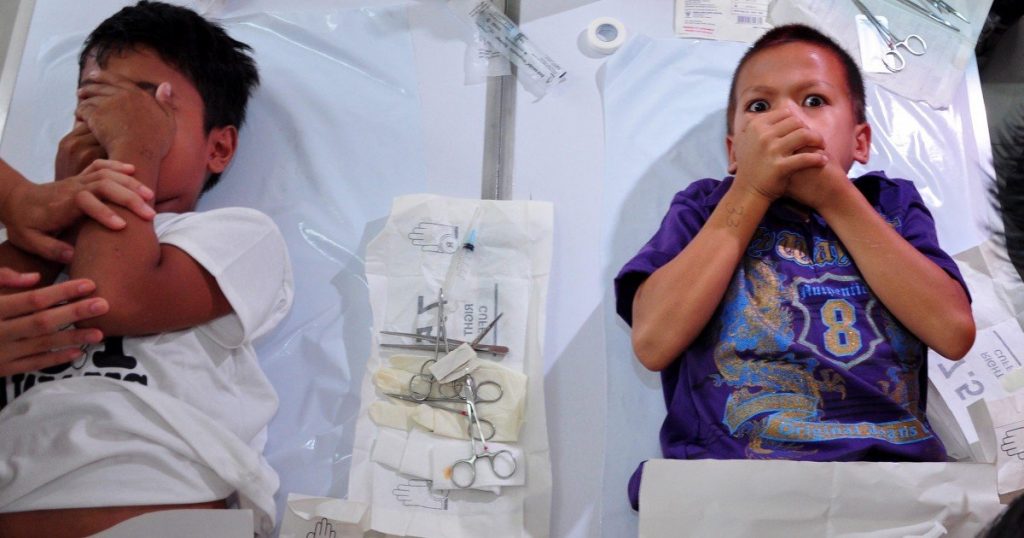circumcision refers surgically removing the outermost skin layer from the penis. The more common surgical procedure involves cutting the shaft with minimal forceps and placing a small, scalpel-like instrument on the cut surface. To reduce physiologic or pain responses, local or topically applied anesthesia can be used. This procedure is normally done under general anesthesia.
Although complications are rare, they can be caused by minor injuries or excessive bleeding at a surgical site. There are several complications that can occur, including infection, hematoma (a buildup of blood fragments around the wound) and necrotizing fasciitis (a condition in which the tissue surrounding the corpora Cavernosa is permanently damaged or dies). Infection and necrotizing fasciitis are the most common complications that result from circumcisions. Both cases have limited treatment options and require surgery.
Male infants and toddlers are most likely to experience a form of neonatal herpes simplex virus infection, also called herpes simplex virus not in situ (HSV-NOS) after they undergo routine circumcision. Around ninety percent of male toddlers and infants will develop a cold sore or fever blister within a few days. These cold sores usually disappear in about three weeks. Some may persist for months. The majority of cold sores in toddlers or newborns are caused either by Type I viruses or a strain from the Herpes Simplex Virus Type I virus. Rarely, the virus can be caught in the fluid that circulates in the penis during masturbation.

The vast majority of herpes outbreaks in circumcision Perth and toddlers are caused by one strain of the virus; however, there are rare instances when two strains interact and cause death in newborns and young children. This has been confirmed in patients suffering from AIDS, or lymphoma. They were exposed to the virus in utero. Although it is not known why certain people are more likely to develop this disease than others, it is known that herpes risk increases after the second, third, and fourth birthdays of infants and toddlers. If a parent or caretaker chooses to remove the penis of a baby or toddler too soon after birth, there is a greater chance that the child will contract herpes.
Paraphimosis, which is a condition that causes the skin to become infected from germs from other areas of the body, is the second. Paraphimosis is not reduced by circumcision, but it can be relieved. Paraphimosis can recur, but circumcision does not prevent it from happening again. However, there are medications available that will decrease the chance of it happening again. In extremely rare cases, infants with paraphimosis can be hospitalized until they are fully healed. Paraphimosis infants may require surgery to remove a portion of their penis in rare cases. This is to repair any damage caused by the circumcision procedure.
The most serious complication of Circumcision is its complications. Only one case of a baby being killed by complications of Circumcision occurs: the infant son of a little girl who contracted Herpes Simplex Virus(HSV) in utero, while she was still in the womb of her mother. The infant and his mother were not infected with the virus, but it was treated with a topical antiviral. Unfortunately, the disease did, in fact, spread to the infant’s blood and the mother developed severe fever and swollen lymph nodes, which could have potentially led to death. The skin is not usually affected by Herpes Simplex Virus, unlike other vaccines and treatments. However, it can be very painful. Therefore, if your baby ever contracts a case of Herpes Simplex Virus it is imperative that he be treated as soon as possible with the highest quality care available.